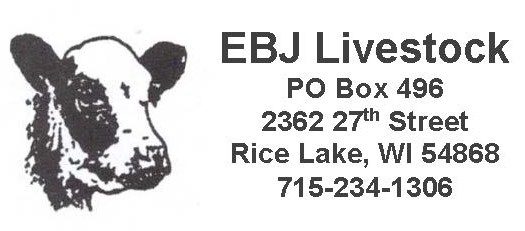Years ago, we participated in a program that brought kids from all the schools in the area to a farm and taught them about agriculture. We don’t live there anymore to continue to participate, but we enjoyed sharing what we do with hundreds of kids.
The students were mostly fourth grade. Stations were set up around the farm for milking cows, goats, sheep and wool demonstrations, growing crops, cattle production and more. It lasted a few days, and a group of kids would come to each station to listen to a short presentation, maybe do an activity and ask questions.
Our station was on beef cattle. Since the program took place in the spring, we always brought in a cow-calf pair and talked about the life cycle, ranch life and what products came from cattle.
- Most girls squirmed to find out many makeup companies use hooves in makeup production.
- Boys thought it was cool that beef parts went into antifreeze.
- We had a plethora of reactions when we told them marshmallows and Jello contain gelatin from hooves. We had marshmallow samples to see who’d eat them after finding out.
- Many conversations revolved around the students’ love for hamburgers.
We had some pretty bizarre questions too:
- What do cows eat? (We really thought kids would know this by age 10.)
- Do you ride your cows?
- But perhaps the strangest: What part of the cow do chicken nuggets come from?
What??? I’m sure we had a deer-in-the-headlights look.
Son, that comes from chickens.
I realize we all have moments of asking less-than-intelligent questions, but that question baffled us. Do people really not know where their food comes from?
During quarantine and supply shortages, it became apparent kids who ask these questions have parents who could possibly ask similar questions. I read a remark recently by a consumer who stated they didn’t understand what the fuss was about processing plants. If she (this consumer) wanted meat, she would just go buy it in the store.
What?? How do you think that meat got there?
It is a growing concern to us as producers that consumers understand where their food comes from. Many people walk into stores and grab a package off the shelves without thinking about how it got there. Not only that, but purchases are often made strictly on price, with whatever is cheapest selling the most quantity.
I know we’ve been down this road in the past, trying to get labels that actually tell consumers where their meat comes from and not just the country in which it was processed. However, during the pandemic, it has been interesting to hear discussions about our food supply.
We are still waiting to see how a lot of this plays out long-term in regards to the cattle market. No one could’ve guessed in February what would happen in March or into July. The world is full of unknowns and speculative guesses. We can’t control a lot of the things that have happened, although our input may help in how the future unfolds.
What we can control is trust.
Who we trust and who trusts us.
We sell beef outright to consumers by the half or whole. The people who purchase our meat expect quality beef. They know they’ll pay a chunk of money because they are purchasing a lot of beef up-front. The cost isn’t all that different from the grocery store when you price out all the cuts, but they have to have freezer space for the beef.
Bottom line is: Our customers trust us to provide a high-quality meat. So do the feedlots or others who buy our calves. We want those animals to have a quality life and perform well. We want to be trustworthy in what we do and in who we are.
During these interesting times, it seems like trust is dissolving in many areas and strengthening in others. I can’t tell you who to put your trust in – that’s your choice. We better know though, that what we are trusting in is trustworthy.
Consumers trust grocery stores to give them food. Few of them think about the chain that happens before it hits the shelf.
I know the kid who loved his chicken nuggets didn’t have a clue where his favorite meal came from, but hopefully this pandemic will lead to positive changes, and people will start to ask questions about their food. Maybe it will lead to more people purchasing directly from ag producers. I hope people begin to see the importance of agriculture.
After all, our country was founded on principles of stewardship and trust – and agriculture played a vital role in our independence. It still does and always will.









